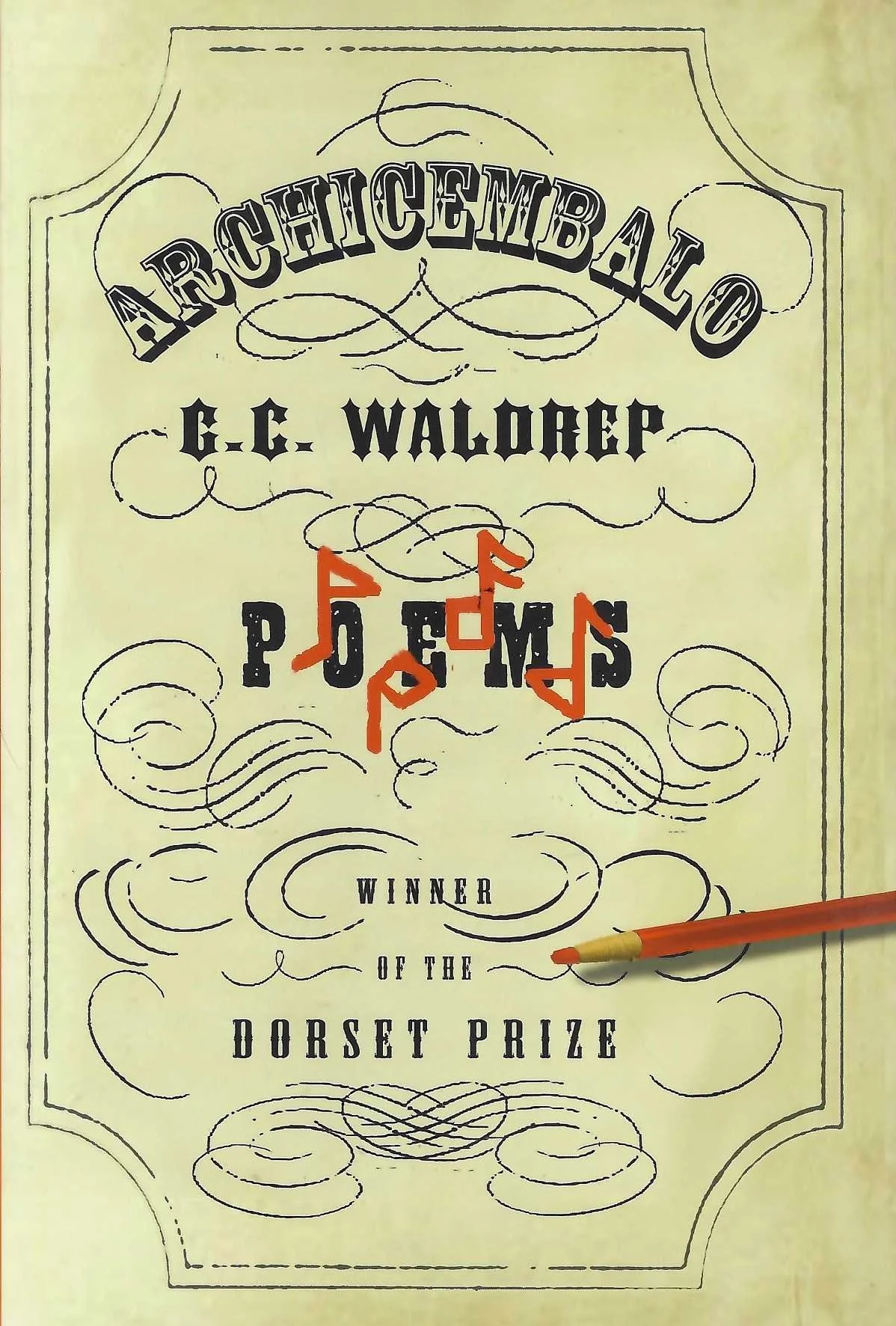Winner of 2008 Dorset Prize, selected by Judge C.D. Wright
About the Author
G.C. Waldrop’s first book of poems, Goldbeater’s Skin, won the 2003 Colorado Prize for Poetry, chosen by Donald Revell. This was followed by two chapbooks, The Batteries (New Michigan Press, 2006) and One Way No Exit (Tarpaulin Sky, 2008), and three more full-length collections, Disclamor (BOA Editions, 2007), Archicembalo (Tupelo Press, 2009) and Homage to Paul Celan (Marick Press, 2009). His nonfiction book Southern Workers and the Search for Community (Illinois, 2000) examines the lives of textile workers during the early twentieth century. Granted a fellowship from the National Endowment for the Arts in 2007, he has also received awards from the Academy of American Poets, the Poetry Society of America, the North Carolina Arts Council, the Campbell Corner Foundation, and the Bread Loaf Writers’ Conference, along with a Pushcart Prize. He holds degrees in history from Harvard and Duke and an M.F.A. in poetry from the University of Iowa, and he teaches at Bucknell University in Pennsylvania, where he directs the Bucknell Seminar for Younger Poets.
Advanced Praise
We can now report that Waldrep’s effort was a successful one, as few poetry collections published this century as capably cleanse their readership with unerringly collapsing waves of sound and meaning—just the sort of phenomenon that commands the constant attention, engagement, and admiration of readers. —Seth Abramson, Huffington Post
Publishers Weekly review of G.C. Waldrep’s Archicembalo: Starred review. Often breathtaking in its erudition, at other times imbued with a forceful simplicity, tricky in its sensibility yet clearly driven by affection, this third collection from the prolific Waldrep (Disclamor) might be the best book of prose poems to appear in a long while. The poems’ titles modeled after the format of old American musical instruction books mostly inquire into definitions of musical terms: “What Is a Key Signature,” “What Is a Motet.” An archicembalo is a keyboard instrument that plays microtonal music, with more than 12 notes per octave. The fine distinctions and unfamiliar harmonies such music contains reappear in Waldrep’s curious paragraphs, packed as they may be with odd words and non sequiturs: Sardine of the breath, phoretic flicker. From the bandstand click of a heel like a tooth. They also pay attention to human action and need. They have jokes (Bad parties are in evidence everywhere), anecdotes about children (Waldrep often thinks about names children give things), even embedded anthems: What is union, times whistles and bells, the whole commodious diapason behind which a third nation lingers. Readers estranged at first might well stick with it. For all the confusing pleasures of Waldrep’s phrases, they contain valuable instruction, too. (April)
Library Journal review of G.C. Waldrep’s Archicembalo: Waldrep (Disclamor) here reveals the transparency of poetic language and its affinities with nonlyric genres such as politics and history and its links to routine activities. The poems are ultimately answers to questions posted by their titles, recalling the Archicembalo, a musical instrument of the 1500s designed to experiment with tonality and allowing for call-and-response. The poet makes rich use of a wide range of symbols, from “General Electric, Mutual Omaha” to a sacred city in Iraq: “The Country around Karbala is desert, meaning a dry wind and sand and/ pilgrims in like season.” While lucid, these poems are written in a fabulist style with a complete absence of narrative linearity and must be read attentively. They create a sense of absence that yearns to be present, of a present on the verge of disappearing, and a new language to be rolled around the tongue and set sailing. Recalling works by Russell Edson and Max Jacob, this collection redefines poetry writing. Recommended for academic and large public libraries. —Sadiq Alkoriji, South Regional Library, Broward City, Florida
Format: paperback
ISBN: 978-1-932195-74-3

